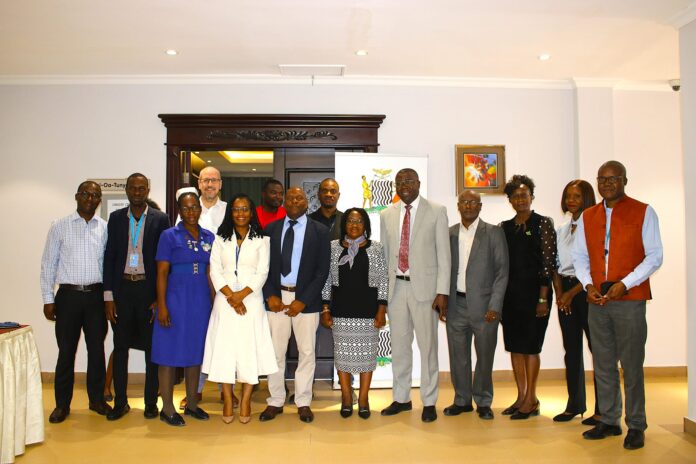Strengthening the One Health Agenda: A Call for Collaborative Action in Zambia
In a recent address, Zambia National Public Health Institute’s National One Health Coordinator, Dr. Raymond Hamoonga, emphasized the critical need for enhanced stakeholder collaboration to effectively advance the One Health agenda in the country. This comprehensive approach highlights the interconnectedness of human health, animal health, and environmental health, underscoring that the well-being of one sector significantly influences the others.
Dr. Hamoonga articulated that the One Health concept is paramount in addressing public health challenges, particularly in a world where zoonotic diseases—those that jump from animals to humans—are on the rise. These diseases pose significant threats to human health, agriculture, and biodiversity, making it imperative for various sectors to work synergistically. He stated, “To achieve meaningful progress, we must learn to coexist as sectors, recognizing that our collective efforts are essential to prioritizing public health for the betterment of our nation.”
The importance of collaboration extends beyond government institutions. Dr. Hamoonga highlighted the role of various stakeholders, including non-governmental organizations, academic institutions, and the private sector. He urged these entities to join forces in addressing the complexities of health issues that transcend traditional boundaries. By leveraging each sector’s unique expertise and resources, stakeholders can develop more effective strategies for disease prevention and control.
One Health is not just a theoretical framework; it has practical implications for disease surveillance, response, and prevention. For instance, the recent outbreaks of diseases like avian influenza and rabies have demonstrated the urgent need for integrated health responses that include veterinary and environmental considerations. By adopting a One Health approach, Zambia can enhance its ability to detect and respond to zoonotic diseases, thereby safeguarding both human populations and livestock.
The media also plays a pivotal role in this collaborative effort. Dr. Hamoonga urged journalists and media organizations to prioritize effective communication regarding zoonotic diseases and public health issues. “Accurate and timely information is crucial for raising awareness and educating the public,” he stated. By ensuring that the public is well-informed, the media can contribute significantly to disease prevention efforts and help mitigate the spread of infections.
Moreover, Dr. Hamoonga pointed out the need for capacity building among health professionals and stakeholders involved in the One Health agenda. Training programs that emphasize interdisciplinary collaboration can equip individuals with the necessary skills to work effectively across different sectors. By fostering a workforce that understands the complexities of One Health, Zambia can build resilience against emerging health threats.
The benefits of a unified One Health approach extend to economic growth as well. Healthy populations contribute to a more productive workforce, which in turn drives economic development. Additionally, addressing environmental health concerns can lead to sustainable agricultural practices that support food security and environmental conservation. In a country where agriculture plays a vital role in the economy, integrating health considerations into agricultural policies is essential.
To facilitate stakeholder collaboration, Dr. Hamoonga proposed the establishment of a One Health platform that brings together representatives from various sectors to share knowledge, resources, and best practices. This platform could serve as a hub for information exchange, fostering a culture of collaboration that permeates all levels of society. By working together, stakeholders can identify common goals and develop coordinated responses to health challenges.
As Zambia moves forward, the commitment to enhancing stakeholder collaboration in the One Health agenda will be crucial. Dr. Hamoonga’s call to action resonates with the understanding that health is a shared responsibility, requiring collective efforts to create a healthier and more sustainable future for all Zambians. By prioritizing this interconnected approach, Zambia can better navigate the complexities of public health and ensure the well-being of its citizens, animals, and environment.



…Hamoonga… he qualifies.
Please call me: Hamstradamus, I want to be director too.
Chance your name, and your life will change for better.
Health institutional management is our Achilles’ heel to realizing One Health agenda, made worse by the appearance of nepotism. We need to be a serious nation, otherwise we will continue lagging behind.
Comments are closed.